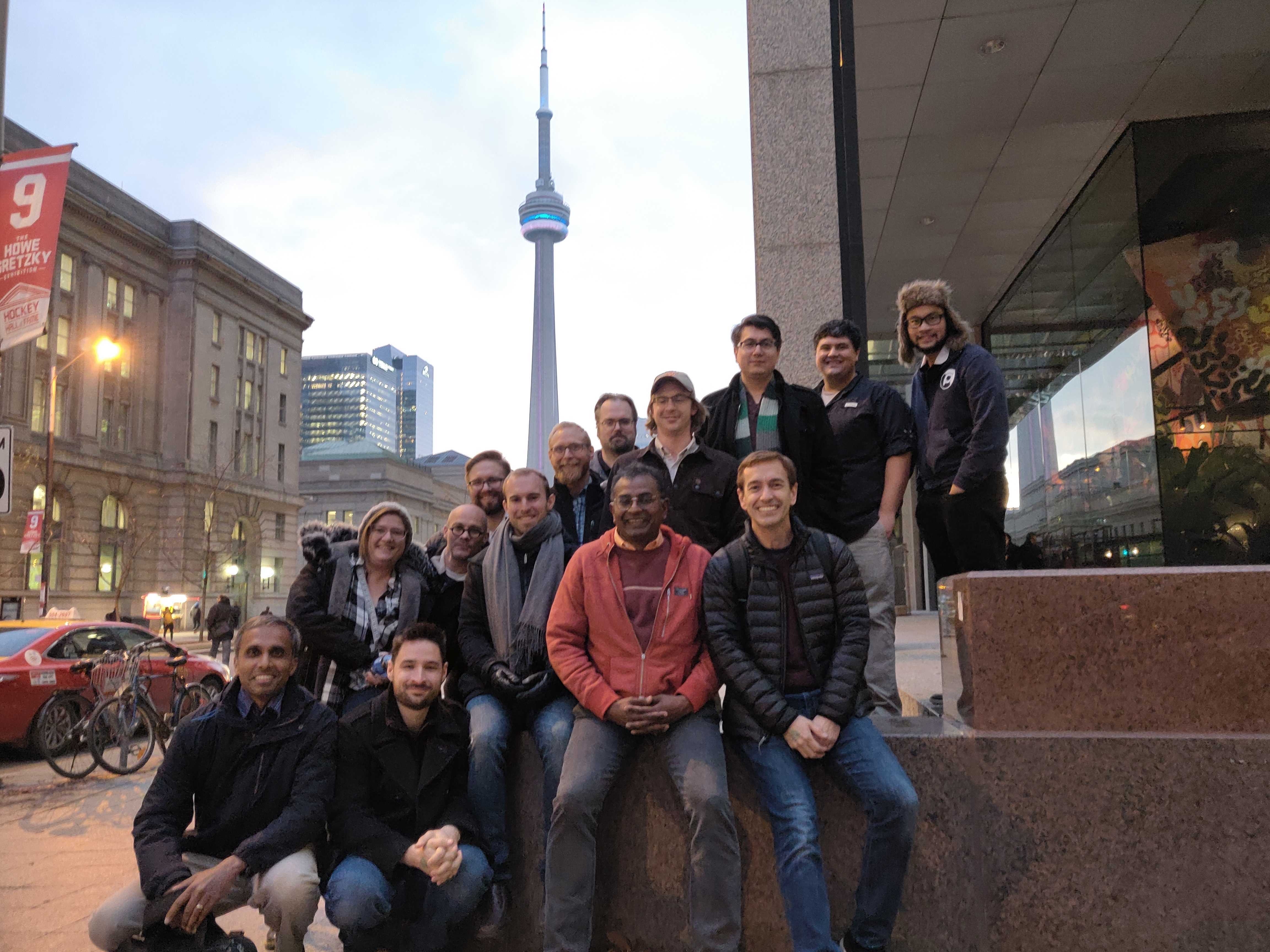
Preteckt Canada poised for growth as it seeks access to Canadian transit fleets
by Sadi Muktadir

The just-in-time manufacturing model has proven to be disastrous for manufacturers during COVID-19 due to supply chain issues, a problem Preteckt's AI hopes to solve.

The Preteckt Canada team pre-COVID-19
On Apr. 11, MaRS announced phase two of its partnership with SCALE AI, a federally-backed, artificial intelligence supercluster, named Supply AI o try and commercialize Canadian supply chain solutions.
Twelve companies were named as part of the latest cohort which would try and scale up their businesses and grow until organizations that could support Canada’s advanced manufacturing sector. One of these companies is Preteckt Canada, an AI driven vehicle maintenance platform that will try and stay ahead of maintenance and repair orders.
This AI-driven business model hopes to avoid waiting on parts shipments that are currently taking months longer than normal due to COVID-19’s lockdowns.
Sasha Kucharczyk, Co-Founder and Chief Operations Officer, sat down with Canadian Manufacturing to talk about what Preteckt’s involvement in Supply AI hopes to achieve.
“We have three main goals from the program,” he says. “Contacts in the AI industry that can help us turn events into quantified dollar value. Our other goal is to expand our growth in Canada, more access to transit fleets and talent right here in Ontario. Our final goal is to tap into some experts that can help us improve our models and help develop AI to helps us parse our repair orders and organize our data sets.”
When asked about what he hoped Preteckt would achieve in six months, Sasha echoed a similar sentiment.
“We’re hoping for growth and expansion with trucking fleets, we’re also hoping for more success with municipal transit agencies here in Canada. We also want to close our Series A financing in the next few months to accelerate our growth.”
The Supply AI program is hoping to address supply chain delays plaguing manufacturers and transit fleets, and Sasha was asked how Preteckt would help avoid automotive manufacturers avoid delays.
Sasha mentions that Preteckt’s AI has tertiary benefits for manufacturers, through increasing the reliability and uptime of the vehicles they monitor. There’s greater reliability on a Preteckt protected truck through the monitoring. Sasha mentions the other benefit to supply chains being a better sense of forecasting for manufacturers so they can determine what parts they will need in the future, and what parts they won’t need.
The just-in-time manufacturing model has proven to be disastrous for manufacturers during COVID-19 due to supply chain issues. Previously, parts would arrive as they were needed, so they wouldn’t sit in warehouses or docks and require additional space. With COVID-19 related delays, Preteckt forecasting allows trucking fleets to know what they will need and when they will need it.
Sasha calls this a ‘much more nimble inventory model without relying on just-in-time logistics’ for trucking fleets.
Sasha Kucharczyk got started at Preteckt when he noticed connected vehicles, and smart cars providing a lot of data, but not many people taking advantage of the data.
Maintenance problems were not diagnosed until a mechanic got their hands on a vehicle, which was seen as an issue, according to Sasha.
“If the data is accessible, why isn’t there something there to help overcome that problem and provide a better maintenance experience for the driver?” Sasha asks.
At the time, passenger and personal vehicles market was not interested in Preteckt’s predictive maintenance model, but they found that the trucking industry was.
Trucking fleets and transit fleets are worth a lot more in terms of assets, and so it was more feasible for both parties to pursue a relationship there.
Ultimately, solving supply chain solutions through AI and predictive maintenance on trucking fleets and transit fleets will lead to a healthier advanced manufacturing sector.
Preteckt’s growth will be interesting to follow for manufacturers, as they watch supply chain delays affect transit agencies and trucking fleets, and the subsequent role AI and advanced technologies will play in helping troubled industries.